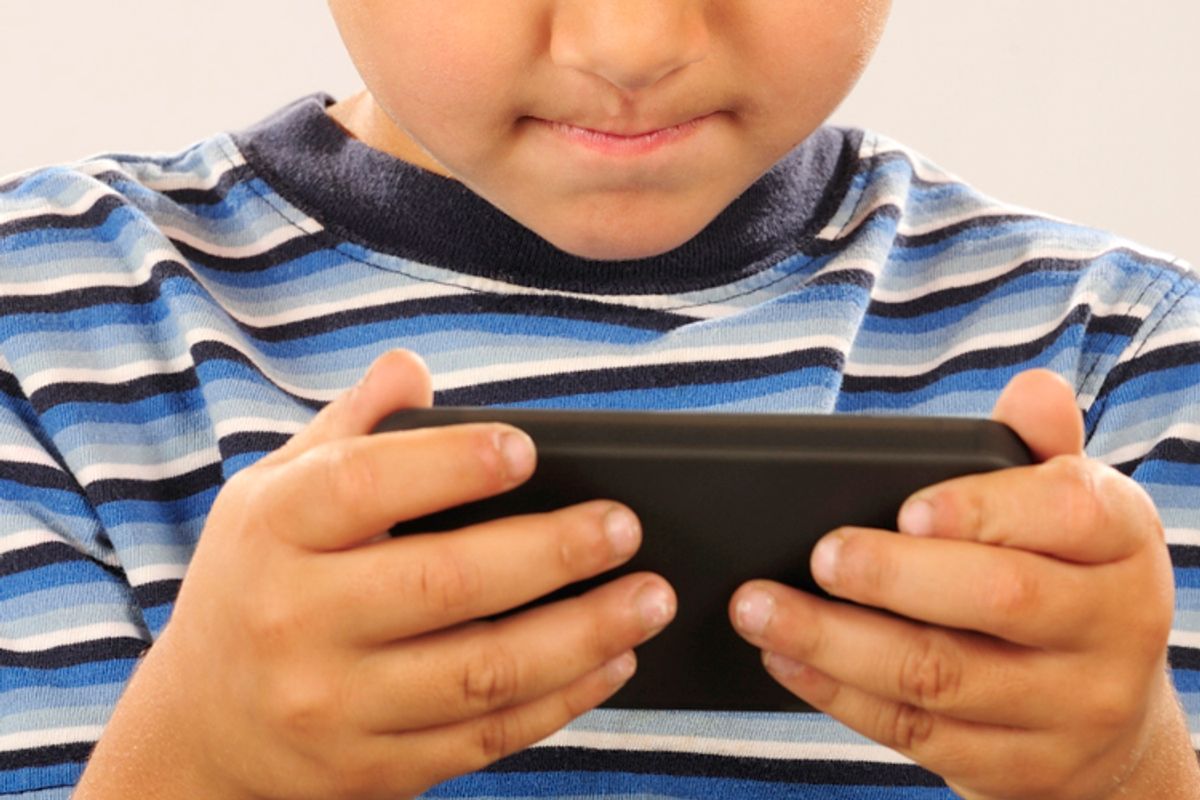As the director of outreach for Common Sense Education, I spend my days talking with schools and parent groups around the country about kids' media and technology lives. These discussions can be challenging, though the materials and resources we provide help start productive conversations and often lead to practical solutions. But just because I work for Common Sense doesn't make it any easierto talk about these issues with my own family.
Not long ago, my elementary school-age daughters started telling me about videos I hadn't heard of — and, more worrisome, talking about material they knew I wouldn't approve of. They know I have a "no-YouTube-without-adult-supervision" policy because it's so easy for kids to see inappropriate content on the platform. So when they started talking about the Charlie Charlie game, Dumb Ways to Die, and even "Fortnite," I was like, "Mmm, where did they see this stuff, and, more importantly, who showed it to them?" I soon discovered that they were exposed to these videos by watching YouTube with their cousin. The dilemma then quickly became, "How do I talk to my brother about this?"
The idea of having a conversation filled me with anxiety. Family unity is one of the most important things to me, and I didn't want this to come between us. I was worried I'd come off as judgy or look like I was using my job as a way to pull rank. And while I didn't want to offend anyone, I also didn't want to hide these infractions. I worried, too, that if I came down too hard, my girls would feel like they couldn't discuss their media technology experiences with my wife and me. And most of all, I really want the cousins to remain close. If I handled this right, I knew our whole family could use this as an opportunity to connect and set expectations — maybe even help our girls self-regulate how they use, and learn more about why they use, technology.
The following weekend, on our next playdate, I let my brother know what the girls shared with me. I started off the conversation by stating, "I want to share something with you as an opportunity for us to collaborate on some solutions — no finger-pointing or reprimanding needed." He responded positively and replied, "Sure, what’s up?" We opened up an honest conversation and ultimately outlined some rules we would all follow to establish consistency within our family. Later that afternoon we also had a family conversation with our girls to guide them on how to help each other make sure they knew the rules with YouTube and other media. We wanted to make sure they knew that we were there to help them understand any challenging content that might come their way. My brother and I have always had different personalities, but having these types of conversations have allowed us to find common threads in our parenting and, more importantly, the support of each other’s family.
Here are the three things I learned are super important in managing screen time with family members who do things differently from how you do:
Be clear about rules. Our no-YouTube-without-adult-supervision policy is crystal-clear. My daughters know it. And now their cousin and uncle know it. I also make sure my kids understand why we have this rule. I explain to them how the platform works, especially with how it serves up ads and related videos. They know I appreciate when they share what they've experienced. And they know the sharing part is the part I value the most.
Solve the problem together. You don't have to be a media pro to work out screen issues. I think of my family as a team with each member bringing something to the table. I rely on my brother's judgment and experience when we look at our kids' YouTube histories to identify the types of videos they searched on and watched and what time of day they did it. It's not to "catch" them, but to better understand their interests and daytime routine, and we discuss as a family whether anything needs adjusting.
Be united as role models. Kids need to see a united front. My brother explained the situation with his daughter and outlined how she can be a guide for her younger cousins. I reinforced the rules and opportunities for YouTube with my little ones and let them know that viewing responsibly is fun — but that inappropriate content might still pop up. This is when I need them to alert me or another trusted adult — like my brother.


Shares